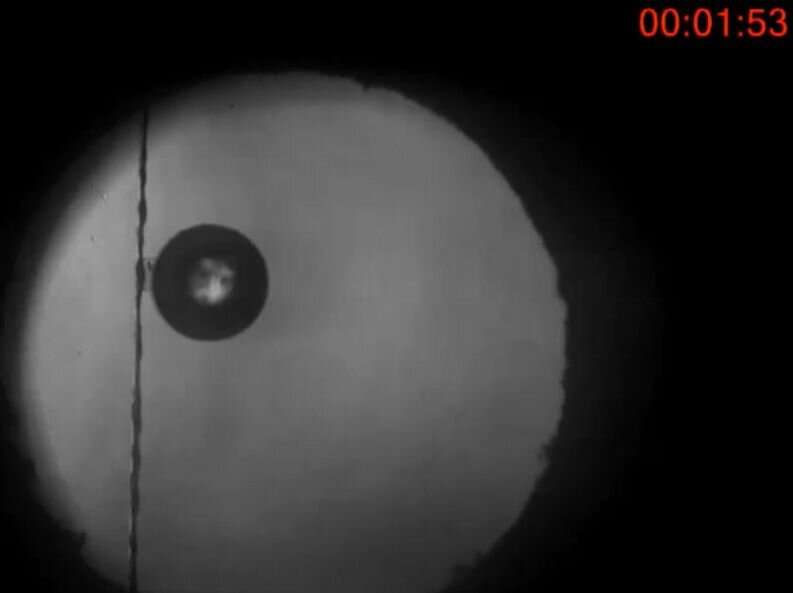Accidental discovery of strong and unbreakable molecular switch

An organic material that can repeatedly change shape without breaking would have many useful applications, such as artificial muscles, pumps or as a switch. Physicists at Radboud University accidentally discovered a material with that property. Their findings will be published in the scientific journal Nature Communications on October 8th.
"I tend to call it the 'molecular pinball machine,'" says Theo Rasing, professor of Spectroscopy of Solids and Interfaces at Radboud University. Together with colleagues from Nijmegen and China, he demonstrates the shape-changing abilities of the material by having it fling a glass bead at high speed. In that process, the organic crystal material 4-DBpFO delivers a force corresponding to 10,000 times its own weight.
The crystals have the unique property of significantly changing shape at small temperature variations around 180 degrees Celsius, and doing so without breaking, which allows for that change to be repeated hundreds of times.
The scientific world has a large need for minute moving machines made of organic material, which can be used as fluid pumps on "labs on a chip" (LOCs), for example. Well-known uses of LOCs include the device that allows diabetics to measure their blood sugar and nano pills that measure bodily functions. "The problem with current organic crystals is that such changes in shape due to temperature, for example, quickly break the material," Rasing explains.
The material that the researchers found does not break upon repeated change of shape, because the molecules slide across each other. "Our discovery of these properties in this material was actually a stroke of luck," says Yulong Duan, Ph.D. candidate and the first author of the publication. "We were mainly studying these materials for their interesting optical properties, but when we changed the temperature under the microscope, the crystal suddenly shot away."
To be able to take further steps toward possible applications, the researchers want to study how the effect could be shifted to lower temperatures through changes in the molecular structure. They also want to investigate how they could make the material change shape by using short light pulses, so the material can be heated and cooled in a controlled manner.
More information: Robust thermoelastic microactuator based on an organic molecular crystal, Nature Communications, Yulong Duan, Sergey Semin, Paul Tinnemans, Herma Cuppen, Jialiang Xu, Theo Rasing , DOI: 10.1038/s41467-019-12601-y
Journal information: Nature Communications
Provided by Radboud University Nijmegen




















